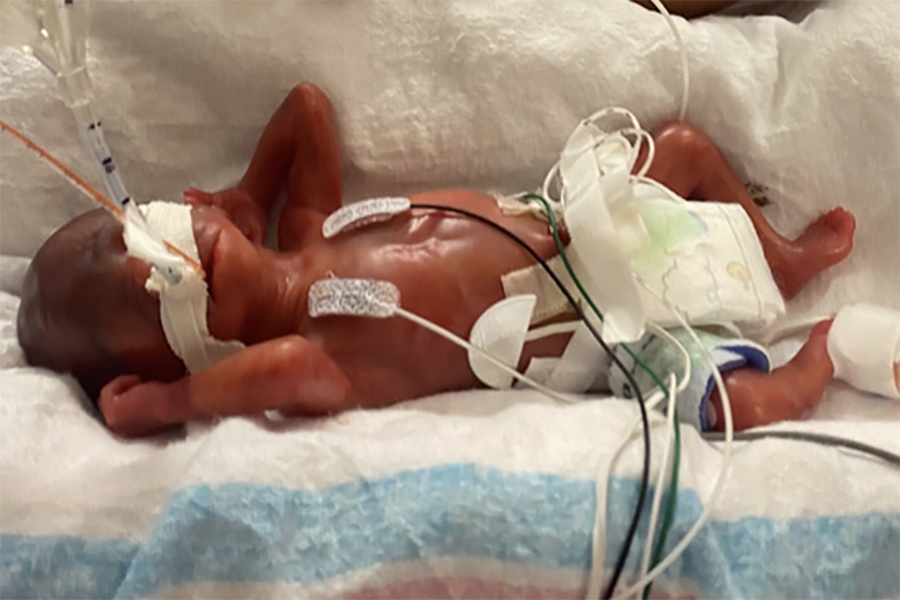Baby born at 21 weeks survives, breaks world record
He had a less than 1% chance of survival.

A baby born at 21 weeks gestation in Alabama last year is the most premature baby in the world to survive, according to Guinness World Records.
Curtis Means and his twin sister, C'Asya Means, were born on July 5, 2020, at The University of Alabama at Birmingham (UAB) hospital. The twins, who were only 21 weeks and 1 day gestational age at birth, had a less than 1% chance of survival, according to UAB. They were about 19 weeks, or 132 days, premature, according to Guinness World Records.
"Numbers show that babies born so young have little to no chances of survival," Dr. Brian Sims, a professor of pediatrics at the UAB who was the on-call physician when the twins' mother, Michelle Butler, arrived at the hospital, said in the UAB statement. C'Asya did not respond to treatment and died the day after birth, but Curtis' heart rate and oxygen levels started to improve.
Related: Signs of labor: 6 clues baby is coming soon
"We have never been able to bring a baby that young to the neonatal intensive care unit, so [Curtis] was literally the first of his kind," Sims told Guinness World Records. We were in uncharted territory."
Curtis was given constant medical care to help him breathe, regulate his body temperature and take in nutrition, among other care. After about three months, the doctors were able to take him off a ventilator.

"Curtis defied all scientific odds," Dr. Colm Travers, an assistant professor in the Division of Neonatology who helped care for Curtis, said in the statement. Age and birth weight are two key predictors of whether a baby will survive, he said. The odds of survival also increase if a baby is female, if the baby is a singleton or if the mother was given steroids to help with lung development prior to the baby's birth — all criteria Curtis didn't meet, Travers said.
Sign up for the Live Science daily newsletter now
Get the world’s most fascinating discoveries delivered straight to your inbox.
Curtis weighed only 14.8 ounces (420 grams) when he was born, about one-seventh the weight of an average full-term baby, according to Guinness World Records.
Curtis, who grew stronger by the day, was discharged from the hospital about nine months later. He was given medication and special equipment, such as a feeding tube and bottled oxygen. After his first birthday, Curtis — or "Poodie," as his family also calls him — qualified for the Guinness World Record.
Six months after he was discharged, Curtis' care team gathered outside the hospital where he was born and surprised Curtis' mother with a Guinness World Record certificate. The previous record holder, Richard Hutchinson, was born just a month before Curtis, at 21 weeks and 2 days gestation, on June 5, 2020. Prior to that, the record remained unbroken for 34 years.
Originally published on Live Science.

Yasemin is a staff writer at Live Science, covering health, neuroscience and biology. Her work has appeared in Scientific American, Science and the San Jose Mercury News. She has a bachelor's degree in biomedical engineering from the University of Connecticut and a graduate certificate in science communication from the University of California, Santa Cruz.
Man gets sperm-making stem cell transplant in first-of-its-kind procedure
'Love hormone' oxytocin can pause pregnancy, animal study finds









